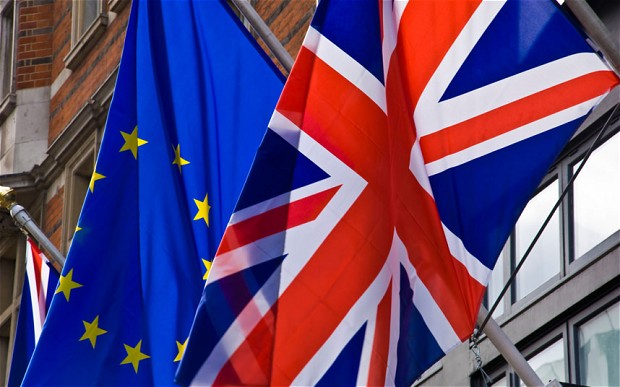This post is the first of series of posts by CEFEUS Jean Monnet Studentship Holder 2015-16, Francesco Violi on Britain’s European future.
Many pro-Europeans are of the opinion that European integration is a process of “ever closer union”, the end-point of which is the emergence of something approximating a federal European state. Since the UK has generally been the member-state most critical of the federalist ideal, it is worth asking whether a Brexit might hasten moves on the continent towards ‘ever closer union’. It is undeniable that UK was much keener than other EU members in preserving its own sovereignty and national identity: The country opted out of the borderless Schengen area and the common currency, as well as the recent treaty establishing a ‘fiscal compact’. This scepticism has been even more marked in the area of common defence and security, where Britain’s identity as an ‘off-shore’ nation and its relative preponderance in national defence spending relative to other member-states have undercut British support for a ‘European army’. It is not unlikely, therefore, that the separation of the UK from the EU could remove many stumbling blocks toward increased integration.
But is this scenario actually likely? There are several reasons to think not. To begin with, a Brexit would have a damaging economic effect not just on the UK, but also on Europe as a whole. Brussels may be too preoccupied with ‘firefighting’ the consequences of a Brexit to invest significant efforts into further moves towards integration. Second, the attractiveness of the European project may be severely dented by the visible exit of one of its more powerful members, forever damaging the credibility of the EU in the eyes of its remaining members. Moreover, a Brexit would set a very dangerous precedent for other member-states – especially in presently Eurosceptic countries like Denmark, Sweden, Hungary and Poland – to threaten to leave in the hope of securing more favourable terms of EU membership for themselves.
After Brexit the EU could face many painful months and it is very likely that in other EU countries the anti-EU and Eurosceptics parties would feel boosted and therefore ask of similar referenda. Marine Le Pen in France and Geert Wilders in the Netherlands have already promised similar initiatives, in case of positive outcomes for the Brexit supporters. Even Czech prime minister Bohislav Sobotka claimed that it would be more difficult for his government to stop this kind of initiative from being promoted in Czech Republic. This implies that for at least one or two years, the EU integration process would be paralyzed in the Council, whose members would be afraid to take any initiative before the turmoil is over, waiting for this expectable anti-European wave to slow down. They would probably look only to contain anti-European demands, rather than embarking on any new initiatives.
However it is not excludable that after this period of adjustment, the integration process could start again without Britain. It is very likely that, without the UK, France would need to cooperate more with Germany on matters of defence and security, and that the position of non-Euro countries within the EU would be weakened. This would imply that, in case of Brexit, the dynamics of Eurozone completion and EU integration would become more and more embedded over time, although this process is likely to be visible only in the short- to medium-term as the EU dusts itself off from the short-term consequences of a Brexit.
 Politics
Politics Anna Vanaga
Anna Vanaga 686
686


